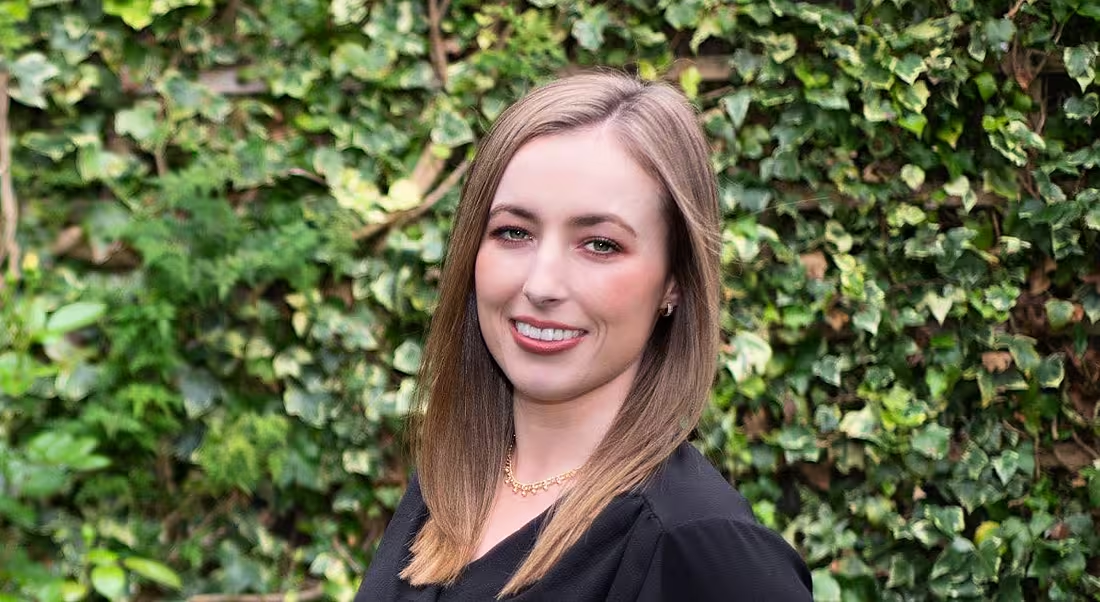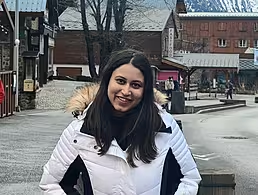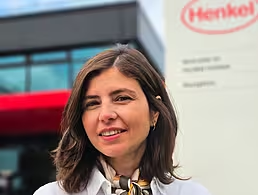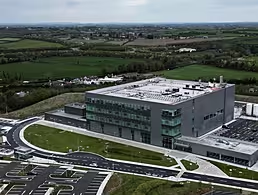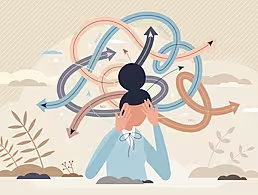Aisling Ryan, a final-year PhD student at RCSI, sheds some light on the skills she uses in her work to help develop effective cancer treatments.
Having completed her degree in medicinal chemistry in 2017, Aisling Ryan is now a final-year PhD student at the Royal College of Surgeons in Ireland and a member of SSPC, the Science Foundation Ireland research centre for pharmaceuticals. As a medicinal chemist and a cancer researcher funded by the Irish Research Council, she designs and makes medicines using a variety of skills both in and out of the lab.
Here, she talks about her daily work and why she wants to challenge the idea that all types of cancer are the same.
‘Sometimes it can be like a very big puzzle that needs solving and although it’s challenging, I really love it’
– AISLING RYAN
Can you tell us about the research you’re currently working on?
My research is focused on developing medicines to treat a few different types of cancer which are all driven by the same biological process.
Cancer cells are actually very similar to our healthy cells. In fact, cancer cells initially form from our healthy cells. So, this means that every person who develops cancer has, to a certain degree, their own unique version of the disease. Depending on where in the body is affected by cancer, there are different treatment methods.
Chemotherapy is what I work on, which is using chemicals to destroy the cancer cells or stop the tumour from growing. Although chemotherapy can work really well for a lot of people, it generally has really awful side effects which can leave the patient feeling very unwell.
At the moment a large amount of chemotherapy drugs kill cancer cells but also damage healthy cells. Many treatments also don’t kill every inch of the tumour and so it can grow back and be more difficult to treat.
One function I am trying to incorporate into the drugs I am making is for them to kill cancer cells, as would be expected with usual chemotherapy drugs, but to also make it less toxic towards healthy cells. It’s exciting to be developing these novel drug candidates and seeing how they fare in the biological tests.
What first stirred your interest in this area?
Funnily enough I never thought I liked science while growing up, but I’ve always been innately interested in the immune system. Diseases and treatments have always intrigued me, but I am very squeamish so studying medicine was never something I considered.
I also didn’t realise that scientific research involved medical applications. It was only when I was 16 years old and science was split into separate subjects in school that I realised I really liked chemistry. From here I started looking into possible careers involving chemistry and discovered its application in medicine.
In terms of cancer research, I guess I’ve always been very aware of how prevalent cancer is and how difficult and complicated it is to treat. Breast cancer runs in my family. I’ve lost extended family members to breast cancer, as well as other types of cancer. I think everyone knows someone who has either had cancer or been affected by it. When you see the impact a disease can have it really motivates you to try and improve the outcome in any way you can, and for me that’s joining the battle to try and improve the treatments.
If there is such a thing, can you describe a typical day for you?
Most mornings begin with checking any new emails and updating my to-do list, slotting in new meetings and planning my lab work accordingly. Whether it’s for one hour or eight hours, each day always involves some degree of lab work. The drug candidates I want to make are known chemically as compounds. Sometimes I will need to make a number of different compounds. I also need to purify these compounds.
Aside from lab work, I could spend one afternoon reading papers and another meeting with my group or my supervisor to discuss updates. Sometimes it’s nice to a have a break from the lab work.
There is a lot of trial and error, as well as problem solving and troubleshooting, involved in making compounds, so every day counts. Given the nature of my projects, I am rarely making the same thing twice so the lab work itself is never really repetitive, which I prefer.
The lab is also a very social place; you are always surrounded by peers. For me this is other PhD students, postdoctoral researchers, research assistants and lecturers from my department. If ever I am unsure about something, or just want to discuss a problem to help solve it – or simply have a pleasant chat – there is always someone to talk to.
What skills and tools do you use on a daily basis?
Nuclear magnetic resonance (NMR) spectroscopy is a tool I use on a near daily basis. NMR is literally just an MRI scan but for the compounds I make. Interpreting an NMR spectrum is definitely a tricky thing to learn and is still challenging even when you are interpreting spectra on a daily basis, but it’s an extremely useful tool and essential for any synthetic chemist.
Communication, particularly verbal, is a skill that is often overlooked in science. But in my opinion it is one of the most important skills to have, whether it’s communicating ideas with my supervisor, guiding an undergraduate student through a lab-based project or presenting my work either internally or at a conference.
Writing skills and problem solving also play a key role in research. Keeping good lab notes is really important so that an experiment can be repeated if it’s successful. I think problem solving is a core part of any research job.
Are there any common misconceptions about this area of research? How would you address them?
A common misconception is that every type of cancer is the same and it’s a one-size-fits-all solution, which subsequently leads to the misconception that cancer research isn’t as urgent as research for other diseases.
In reality, every type of cancer is different and every individual who has cancer is different. Treating cancer is not like treating a throat infection or a cough; the treatment is completely tailored to the area affected by the tumour, how developed the tumour is, the biological driving force of the tumour and the patients themselves.
It’s almost impossible to predict how each individual patient or tumour will even respond to a treatment. There are many factors to be considered and many researchers required to crack the codes.
Science communication is an extremely valuable means to break down common misconceptions. There are many ways scientists can get involved in public outreach, by taking part in interviews or by signing up for one of many science outreach events hosted throughout the year, such as FameLab and Soapbox Science. I’ve really enjoyed taking part in these events and have found them to be very engaging.
When you first started work as a cancer researcher, what were you most surprised to learn was important in the role?
Probably having strong communication skills. As a scientist there is generally a misconception that you need to be really smart and have all of this knowledge almost flowing out of your ears, but in reality I have found that the biggest asset is to be an effective communicator.
What do you enjoy most about your career in research?
I really love using chemistry to make new compounds in the lab. Sometimes it can be like a very big puzzle that needs solving and although it’s challenging, I really love it.
Although it’s not expected that the independent work I do during my PhD will end up on a shelf in a hospital pharmacy, the thought that this work I am conducting could hopefully make a small difference to future cancer treatments is a great motivator.
Updated, 6.01pm, 4 November 2020: This article was amended to include details of Aisling Ryan’s funding from the Irish Research Council.
